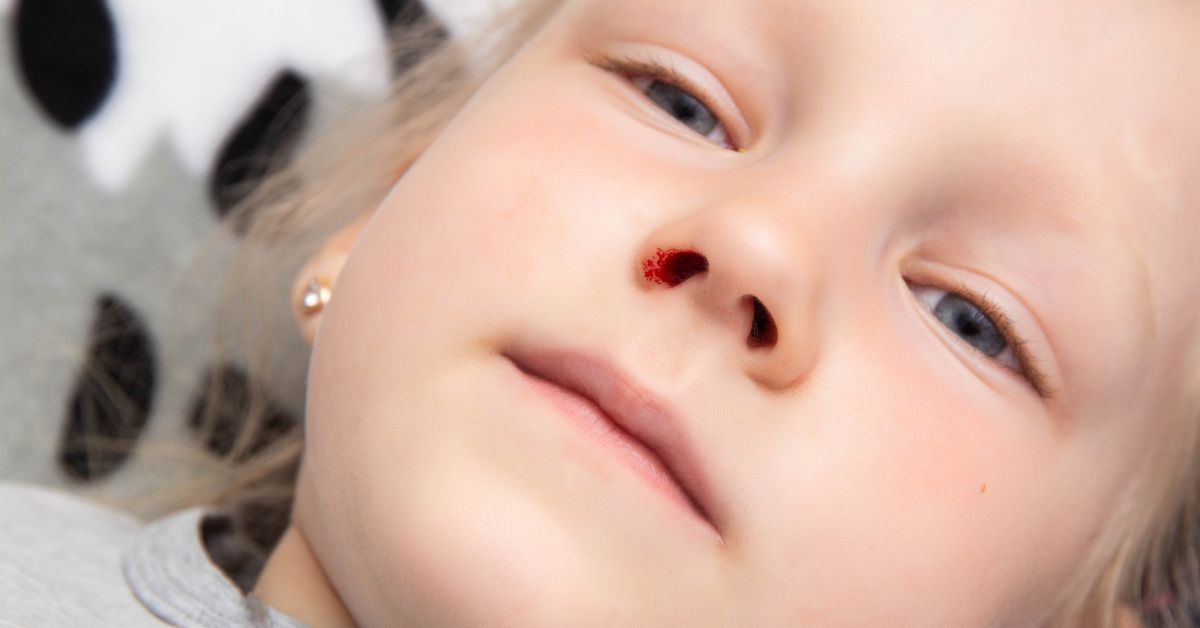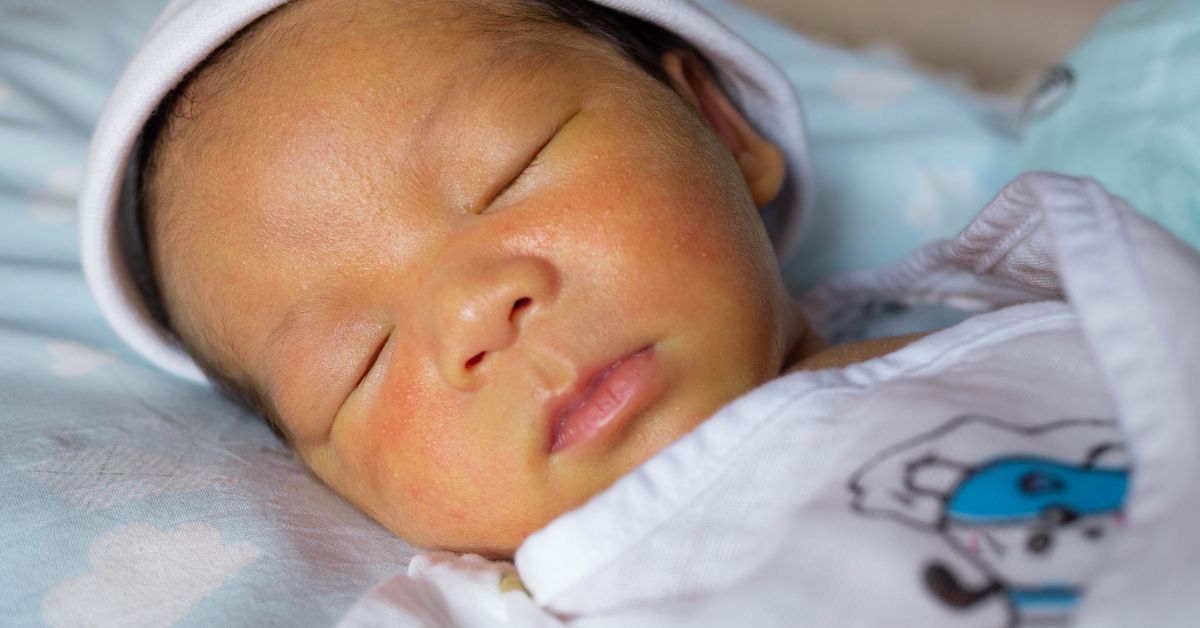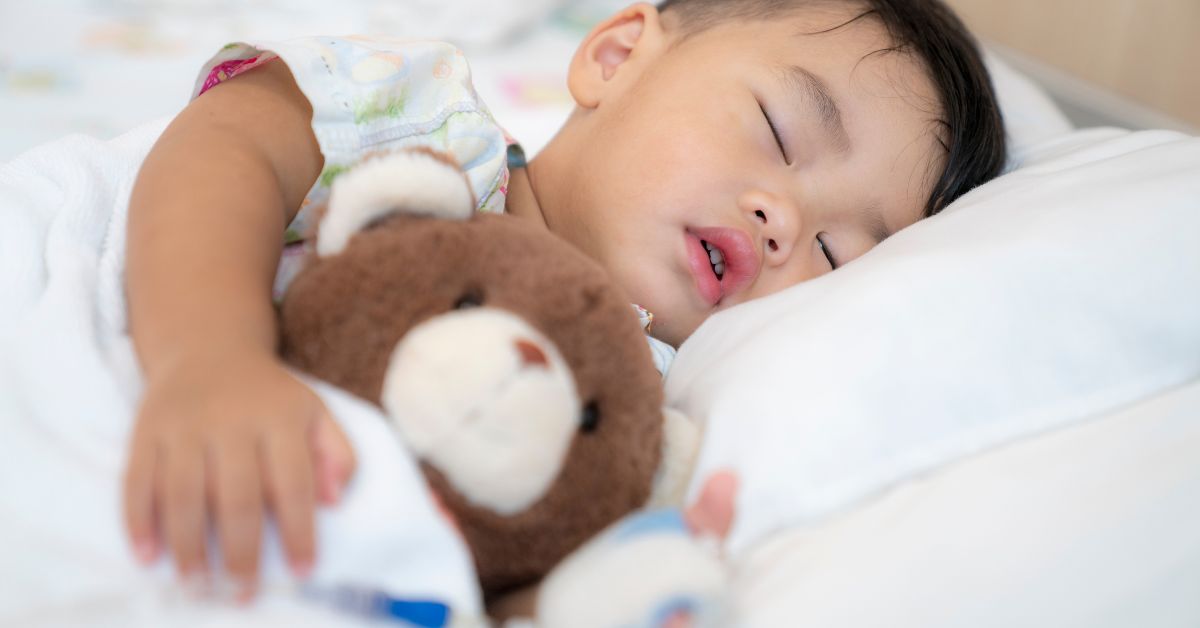Children are one of the susceptible groups to contract viral fever due to their immature immune systems compared to adults. As a result, many children suffer from this condition. So, what are the symptoms of viral fever in children? Is viral fever dangerous, and what preventive measures can be taken? These questions will be answered in the following article. Let’s explore together!
What is Viral Fever in Children?
Viral fever (viral infection fever) in children is a common condition, often caused by various types of viral infections, significantly affecting young children. Common viruses causing fever in children include Influenza A and B, Respiratory Syncytial Virus (RSV), Coronavirus, Parainfluenza, and Adenovirus.
Some Symptoms of Viral Fever in Children
Symptoms of viral fever in children may vary depending on the infecting virus and the child’s health condition. Here are some common symptoms of viral fever in children:
1. High Fever
Children may have a high fever, usually above 38°C. The temperature can rise rapidly and last for a period.
2. Fatigue and Sleepiness – symptoms of viral fever in children
Children often feel tired, lack energy, and desire frequent rest.
3. Digestive Disorders
Symptoms such as nausea, vomiting, abdominal pain, or diarrhea may occur due to damage to the digestive system.
4. Respiratory Symptoms
Cough, runny nose, sore throat, difficulty breathing, nasal congestion, sneezing, and sinusitis are common symptoms associated with viral fever in children.
5. Loss of Appetite
Children may lose their appetite and struggle to consume food.
6. Mood Changes – symptoms of viral fever in children
Children may become irritable, stressed, cry more than usual, and experience mood swings and difficulty sleeping.
If your child exhibits any of these symptoms, it is crucial to take them to a doctor for examination and an accurate diagnosis. The doctor will prescribe appropriate treatment measures and provide care instructions for the child’s health stabilization.
Is Viral Fever in Children Dangerous?
Viral fever in children can lead to complications and pose a particular risk to young children. Some complications may include:
1. Pneumonia
Certain types of viruses, such as Influenza and Respiratory Syncytial Virus (RSV), can cause pneumonia, a severe condition requiring timely treatment.

High fever is a typical symptom when a child contracts viral fever
2. Encephalitis
Some viral infections can invade the nervous system and cause encephalitis, a dangerous condition that can significantly impact a child’s health.
3. Respiratory Complications
Viral fever can cause issues such as a runny nose, sinusitis, tonsillitis, and other respiratory problems, weakening the immune system and increasing the risk of various respiratory infections.
4. Dehydration
Children with viral fever may lose water rapidly due to high fever and symptoms like vomiting or diarrhea. Dehydration can lead to an electrolyte imbalance and compromised health.
5. Other Complications
Viral fever can also lead to complications such as ear infections, hepatitis, myocarditis, and meningitis.
What to Do When a Child Has Viral Fever?
When a child has viral fever, you can take the following measures to assist the child and manage symptoms:
Ensure Rest
Allow the child to rest and create a comfortable environment for recovery.
Keep the Child’s Body Cool
Dress the child in breathable, not overly warm clothing. Use thin and cool clothing when the child has a high fever to reduce body temperature.
Ensure Adequate Hydration
Ensure the child drinks enough water to maintain hydration. If the child is reluctant to drink a lot, provide water in small sips or try giving the child non-carbonated sports drinks or freshly squeezed fruit juice.
Use Fever-Reducing Medications
If the child’s fever is high and causing discomfort, use fever-reducing medications such as paracetamol or ibuprofen according to the doctor’s instructions. Note that aspirin should not be used for young children due to the risk of harm.

Fever-reducing patches help lower the temperature for children when they have viral fever
Monitor Symptoms
Keep track of the child’s symptoms, including body temperature, alertness, eating habits, and activity. If symptoms become more severe or prolonged, contact a doctor for advice and appropriate treatment.
Limit Close Contact with Others
To prevent spreading the virus to others, limit close contact with other children and vulnerable adults. Especially avoid contact with other children or adults exhibiting symptoms of fever or cold.
Adhere to Preventive Measures
Ensure that the child and the family adhere to preventive measures, including frequent handwashing, covering the mouth when coughing or sneezing, and maintaining good personal hygiene.
Preventive Measures to Avoid Viral Fever in Children
To prevent viral fever in children, you can implement the following measures:
Frequent Handwashing
Instruct the child to wash hands with soap and warm water for at least 20 seconds. Particularly, wash hands before eating and after touching dirty surfaces, shaking hands with others, or contacting animals.
Avoid Close Contact with Fever-Infected Individuals
Limit close contact with individuals who have a fever to reduce the risk of infection. Especially, avoid contact with other children or adults with symptoms of fever or cold.
Cover the Mouth and Nose When Coughing or Sneezing
Teach children to cover their mouth and nose with their elbow or a tissue when coughing or sneezing to reduce the spread of viruses and bacteria into the environment.
Avoid Touching the Face
Prevent children from touching their eyes, nose, and mouth without washing hands first. This is how viruses often enter the body.
Personal Hygiene Practices
Teach children proper personal hygiene procedures such as brushing their teeth, cleaning their chest and hands after coughing, and keeping their nails short to avoid bacterial accumulation.
Boost Immune System
Supplement a healthy diet, including plenty of fresh fruits and vegetables, foods rich in vitamin C and D, to boost the child’s immune system.
Vaccination
Adhere to the recommended vaccination schedule and ensure that the child has received all vaccinations as directed by the doctor.

Vaccination and regular check-ups with a doctor are effective preventive measures against viral fever in children
Remember, preventive measures help reduce the risk of contracting viral fever but do not guarantee complete immunity. The most crucial aspect is maintaining personal hygiene and monitoring the child’s health.
This article has shared information about the symptoms of viral fever in children and related knowledge. Therefore, if children show any of the above symptoms or have unusual symptoms, take them to a doctor immediately for examination and timely treatment.
Kiểm Duyệt Nội Dung
More than 10 years of marketing communications experience in the medical and health field.
Successfully deployed marketing communication activities, content development and social networking channels for hospital partners, clinics, doctors and medical professionals across the country.
More than 6 years of experience in organizing and producing leading prestigious medical programs in Vietnam, in collaboration with Ho Chi Minh City Television (HTV). Typical programs include Nhật Ký Blouse Trắng, Bác Sĩ Nói Gì, Alo Bác Sĩ Nghe, Nhật Ký Hạnh Phúc, Vui Khỏe Cùng Con, Bác Sỹ Mẹ, v.v.
Comprehensive cooperation with hundreds of hospitals and clinics, thousands of doctors and medical experts to join hands in building a medical content and service platform on the Doctor Network application.

























